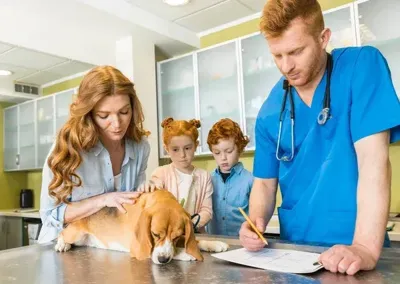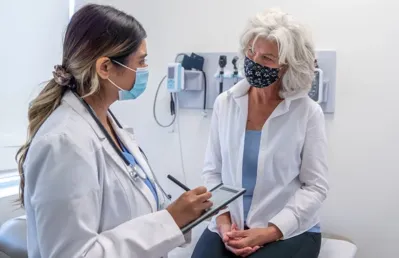That’s why you’ll find access to some of the most innovative medical technology available, including:
![]()
State-of-the-art diagnostic imaging machines
Sterile surgical suites
Around-the-clock monitoring
Treatment options for all types of emergencies
And more
When you take your pet to an emergency animal hospital's ER, you can expect the same advanced technology and expert teams that you’d find at an emergency room designed for humans.
What is the difference between a family veterinarian and an emergency veterinarian?
Veterinary medicine is as diverse and encompassing as human medicine.
When you want to schedule a routine check-up, or you feel sick, you call your family doctor.
When you're experiencing a medical emergency and need help quickly, you go to urgent care or the ER.
When you’re managing a complex or chronic condition, you may see a specialist.
The same is true for your pet. There are veterinarians to support every area of your pet’s health, from preventive care to life-threatening emergencies.
Both family veterinarians and emergency veterinarians provide excellent medical care for pets – though they offer different services.
What kinds of cases do family veterinarians treat?
Family veterinarians provide preventive medicine and wellness care to help your pet live a long and healthy life.
Their services may include:
- Routine wellness exams
- Preventive medicine like vaccines
- Simple surgeries like spay and neuter
- Dental cleanings and extractions
- Care for pets with non-emergency illnesses and injuries
- They typically have long-lasting relationships with their patients and their families, so they care for your pet throughout all stages of their life.
Critical care units
If your pet’s case is high risk or especially complex, they may be treated in the critical care unit (also called an intensive care unit or ICU).
Critical care units are dedicated spaces designed to monitor and treat critically ill pets with features like:
Oxygen cages to comfortably deliver supplemental oxygen
Ventilators to provide breathing support
IV therapies to deliver medications like antibiotics and pain relievers
Heart and respiratory monitoring to constantly assess your pet’s vital signs
A dedicated team of veterinarians and technicians specifically trained to manage the most critical cases in the hospital


